- Home
- Mary Stewart
The Stormy Petrel Page 8
The Stormy Petrel Read online
Page 8
Neil had told me to try and forget about the ‘mystery’, and this proved surprisingly easy to do. On such a morning, with the sky full of larks, and the banks beside the road stiff with foxgloves and wild roses, the odd events of Wednesday night seemed remote, and indeed little more than odd. So I busied myself, as I walked, with plans for supper on Monday night, when I hoped that my brother would be here, and I had invited Neil to join us.
When I drew near the village I could see two girls sitting on the parapet of the little bridge. They seemed to be watching me, and then one of them waved, and I saw that they were Megan Lloyd and Ann Tracy, from Cambridge.
Ann, Megan’s constant companion, was a complete contrast to the dark, rather intense Welsh girl. She was a land agent’s daughter from somewhere in Norfolk, tall and fair, with heavy gilt hair curling down over her shoulders, and a long, slim, slightly drooping body that had a certain elegance. Her oval face, with its thick fair eyebrows, blue eyes, and high colour, and the small mouth with the slight droop there, too, looked deceptively gentle. In fact I knew her for a tough-minded young woman with feminist leanings and rather more interest in student politics than would be helpful in her academic work. At present, Ann led and Megan followed, but that would sort itself out in the long run. Ann had a good brain, but Megan had it in her to be brilliant.
When the greetings and exclamations were over, they told me that they had been staying on Mull for a few days, and had just arrived on Moila, and were putting up at the post office with Mrs McDougall.
‘She told us where your cottage was, and we’ve got a map. Not that you really need one on Moila. We were planning to come down today and see you.’ That was Ann. Megan put in quickly: ‘We knew you were on your own. Mrs McDougall told us about your brother. We’re terribly sorry. Is he badly hurt?’
‘No, no. He says it’s nothing, and he should know. He’s a doctor. I’ve talked with him on the telephone and with any luck he should be over here on Monday. I don’t know how well he’ll be able to get about, but we’ll manage somehow. I’d love you to see the cottage. Were you thinking of visiting me this morning?’
‘Yes,’ said Ann, ‘and then Mrs McDougall said you’d be coming up here for your shopping, so we waited.’
‘And don’t worry,’ said Megan, patting a haversack that lay beside her on the parapet. ‘We’ve got masses of food for a picnic, so you don’t have to feed us. We were going to say hullo to you, and then walk round to that little island – it’s called Seal Island – I can’t say the Gaelic name but Mrs McDougall told me that’s what it means. It’s the one with the broch on it. It looks as if there’s a path over from your cottage, so perhaps we could walk round there and then come back to you for tea?’
‘Well, of course you may, but did you ask about the tides? That’s not a bridge that’s marked on the map, it’s a causeway that’s covered most of the time. I was down there yesterday, and I doubt if you’ll be able to cross much before two o’clock. Why not make sure? I think I saw tide tables in the post office.’
While the girls studied the tide tables I bought my groceries. There were no letters, and to my relief no messages either. No news being good news, that meant Crispin on Monday. I told Morag (Mrs McDougall was busy over the tide tables with Ann and Megan) then went out to wait for them.
It appeared that my guess about the tide had been near enough.
‘Low tide at 4.04,’ said Ann, ‘and we’ve been warned to leave not one second later than six, or be marooned all night. Oh well, we’ll just have to have our picnic on the mainland. Did you say you were down there yesterday, Dr Fenemore? What’s it like? There’s a house marked, right beside the bridge – the causeway, I mean – so will there be people about?’
‘The house is empty, and the place is quite lovely. I was just too late yesterday to go across, but the islet looked marvellous. There’s quite a lot of the broch showing, too, almost the complete circle, with one very high bit where I’m told there are steps going up to what’s left of the top level, with a view.’
‘It sounds terrific,’ said Megan.
Ann made a face. ‘You can have it.’ Then, to me: ‘We went to Orkney last summer, and she made me crawl in through a ghastly tunnel into some underground charnel-house. Never again! It’s bad enough now, but it must have been really something when it was occupied. Apparently they ate nothing but shellfish, and just dropped the shells on the floor when they’d finished. You can imagine.’
‘Unfair to Celts,’ said Megan. ‘Racist. We had middens, and—’
‘Yes, just outside the front door. We saw those, too . . .’ Ann turned a laughing face to me. ‘Dr Fenemore, would you like to come with us? We’d love you to, and you can tell Megan all about her wretched broch. She’s been reading them up for days.’
‘Yes, do!’ Megan joined her plea to Ann’s, with such eager sincerity that I laughed and agreed.
‘I’d love to. But Megan can do the lecturing. I don’t know the first thing about brochs. Look, why not come down to my cottage now, and we’ll have lunch there – I never have much more than just a picnic myself – then we can go across this afternoon, and maybe take tea to have on the island? But on one condition, that you stop calling me “Dr Fenemore”. We’re a long way from Cambridge now, and my name is Rose.’
We shared our resources for lunch – the girls’ picnic sandwiches and a cold pie and some fruit I had bought that morning – and ate it comfortably in the cottage kitchen, with its grandstand view of the bay. To our delight we also got a grandstand view of the original owners of the bay – the otters. An adult, presumably the female, came close inshore, followed by two young ones, and she seemed to be teaching them to fish, but after a few splashing sallies with no success she gave up, and dived away. The pups slithered out onto the weedy boulders, not forty feet from the cottage window, and waited expectantly until she reappeared carrying a sizeable fish, which the two of them ate together, wrestling over it among the sea-tangle. Then the three of them swam away into the deeper water under the headland.
‘They’ll come back,’ I said comfortingly to the girls, who were lamenting that they had forgotten to bring a camera. ‘Surely they will. This isn’t called Otters’ Bay for nothing. And if they come when my brother’s here, he’ll get some marvellous shots of them, I promise you, telephoto lens, the lot, and I think he’s got a video camera now, too. He’ll make prints for you. Now, anyone for coffee?’
‘It is thought by some,’ said Megan, in a smooth lecturer’s voice from which all trace of her faint Welsh lilt had vanished, ‘that the Scottish brochs may be an extension of the southern round-house culture, as exemplified in some sites of south-western England, but this seems unlikely, in view of—’
‘The Scots’ll be pleased to hear that,’ said Ann. ‘But I’m just not enthralled, and I’m sure Dr – I’m sure Rose isn’t either.’
‘Do I really sound like that?’ I asked.
Megan gasped and went scarlet. ‘It wasn’t – I didn’t –’ Then she saw me laughing and flopped her hands forward in a gesture of relief. ‘Of course you don’t! I was quoting, anyway. I’ve been reading up on brochs, but when you’re actually there it’s really just the setting that’s so marvellous, and trying to imagine the sort of life they lived.’
‘Raw shellfish for breakfast,’ muttered Ann.
She was ignored. ‘Weren’t they really forts?’ I asked. ‘Defensive places?’
‘Yes. They must have been the Iron Age equivalent of the mediæval castle with the village and everything clustered round. You can see where there could have been some buildings outside the main ring wall. Hey, Ann, be careful! Where d’you think you’re going?’
Ann was already halfway up the primitive stairway, a series of flat stones jutting out from the inner surface of the highest section of wall. ‘To look at the view. It’s quite safe. They’re solid. Come on up.’ And Megan went, as she always went where Ann led.
As she had said, there was really no
thing left here but the view, and the girls were exclaiming over it now, talking eagerly, and pointing. I left them to it and made my way along the inner side of the curving wall towards the doorway. This high western section was remarkably well preserved, the stone slabs tightly laid, and the primitive stairway safe and solid. But apart from this the broch wall showed only as a circle of raised turf, with a tumble of stones here and there. Outside the circle a few mounds and stones were all that remained of the huddle of huts that had once crowded under the broch’s protection. Nettles grew everywhere, and ragwort, and the wall itself was thick with plants growing in every available gap. I saw saxifrages and wild thyme and others that were unfamiliar to me. There was a lot of some sort of stone-crop, which was pretty enough, but smelled at close quarters rather like cleaning fluid.
The girls were still on their perch. I called out: ‘I’m going over to look at the birds,’ and left them to it.
From what Neil had told me over supper last night, I knew that the main bird colonies were on the western side of the island, where the cliffy coastline was cut into deep gullies, some of them sheer, and some filled with tumbles of massed boulders. I walked across that way, over the crest of the island, easy walking on windswept turf which in a short distance sloped gently down towards the head of the cliffs, where clouds of seabirds were already wheeling and screaming at my approach.
There was a long promontory thrusting out to sea, with a deep inlet to either side where the tide sucked and swirled among fallen rocks. Above the water the cliffs rose sheer, but seamed with ledges and tufted with seapink and white campion. The birds were there.
I had never seen a big seabird colony before. The noise was horrendous, and the depths in front of me, filled with whirling wings, were frightening. I backed a step or two and sat down. Automatically – the writer’s habit – I was trying to find the right word to describe the scene. The one I came up with eventually was ‘indescribable’.
I gave it up and sat still, content to watch.
No rare birds; just the incredible numbers, and the variety. Every niche of the craggy cliff held a nest, every hollow of the turfy ledge just below me had eggs or young gulls nestling there. Further down I saw kittiwakes, with their gentle dark eyes and neat nests; below them, in deeper crevices, the ugly shags with their uglier young, showing the brilliant apricot gape of their beaks as they craned for food. Here and there, unperturbed, solitary among the crowd, the fulmars; and out there in the air, huge and unmistakable among the teeming thousands, those unpleasant predators the great black-backed gulls, with their cruel beaks and dead eyes like sharks’ eyes, and their ineffable grace of flight.
The girls arrived then, breathless and laughing, and making sounds of disgust at the pervading smell and slime of birds’ droppings.
‘And to think the stuff’s valuable!’ That was Ann. ‘Guano at how many thousand pounds a ton . . . What a job! I wonder what they pay the chaps that shovel it up? Why don’t they make an industry of it here? I’m sure there’s just as much on these islands as there is in Peru or wherever . . . No, don’t tell me. It’s a bit vertical, isn’t it? Do you mind if we move back a bit? I don’t normally mind heights, but this is different.’
We retreated to the crest of the island, and sat down where the turf was clean and dry. Megan unpacked the picnic tea and handed me a plastic cup.
‘Would you like a biscuit? We’ve got ginger snaps and shortbread.’ Her eyes were shining. ‘What a wonderful place! You’d think that with all those wings the island itself would start to fly!’
‘Like that one in Gulliver,’ said Ann, and this started a discussion as to whether Scotland could engineer the flight of its islands to hover over England and starve her of sunlight and rain, like Laputa in Gulliver’s Travels. And this, in spite of some effort on my part to prevent it, led to the subject of science fiction, and where it had gone since the original efforts of Swift and Verne and H. G. Wells. But fortunately there would be no embarrassment: when Megan did eventually mention Hugh Templar, it was in passing, and with respect, along with John Wyndham and Arthur C. Clarke and Ursula le Guin.
Ann had never heard of any of them, and refused to be interested in a genre which she dismissed contemptuously as ‘fairy tales’.
‘But fairy tales were topical and highly moral,’ began Megan.
I had to intervene there. ‘Puss in Boots? Jack the Giant Killer? All those murderous little thugs in Grimm who cheated and stole and lied their way to the princess and half the kingdom? No, no, I know what you mean, and on the whole yes, you’re right; your modern fairytale – I don’t just mean what’s miscalled “science fiction”, but all the stories that feed the modern hunger for the super-natural – they do tend to be more or less moral now. Surprisingly enough, considering the norm of fiction.’
This steered them away, as I had meant it to, and they talked for a while longer, then fell silent, enjoying the warmth and the view.
Away to the west was the enormous glitter of the sea, where the small islands floated, weightless in the gently moving water. Even Mull, with its mountains, looked insubstantial. I could just make out Tobermory, looking like an Anne Redpath painting, cubes of white and blue and primrose and Venetian red, the houses and shops strung out along the bay, tiny in the distance.
‘Can’t see your cottage from here,’ said Ann. She had binoculars out and was looking the other way. ‘Can’t really see that house, either; too many trees.’ She focussed nearer. ‘I wonder whose that tent is? No sign of them. Rather an odd place to camp, having to keep your eye on the tides the whole time.’
‘He’s a geologist,’ I said. ‘I’ve met him. And he has a boat.’
She lowered the glasses and glanced at her wrist. ‘And talking of watching the tides, it’s nearly half past four, and Mrs McD does a high tea at half six. If we’re to go home through the fields by the shore – what did you call them, Meg?’
‘The machair. Yes, we ought to go. Can we get there along the shore from the causeway? Can you see? It looks as if there’s a wall sticking right out over the shingle.’
‘That’s the belvedere at the end of the House gardens,’ I said. ‘But there’s a path round under the wall, and the machair starts just beyond the trees.’
‘Yes. You’re right.’ Megan had the glasses now. ‘That’s fine, then, we’ll go that way . . . These are good glasses, Ann. I can just about see that B & B we had in Tobermory, and – hang on a minute . . . I wonder? Yes, it could be . . .’
‘What?’ Ann and I spoke together.
‘The Stormy Petrel. I’m sure it is.’
‘What?’ My voice went high with excitement. ‘A stormy petrel? Where?’
‘There. You see? That boat just out of Tobermory. You take a look, Ann.’ She handed the binoculars over. ‘Is it?’
‘Wait a mo.’ Ann stood up and focussed. ‘I don’t think – I can’t quite – I honestly can’t tell one boat from another, but it looks different. I think it’s just a fishing boat.’
I subsided on to the turf. ‘A boat . . . I thought you were talking about a bird, though how you’d spot one of those little things . . . Ah, well, skip it. What boat did you think it was? What’s this Stormy Petrel?’
‘Oh, it belongs to a terribly nice chap we met on Mull.’ Ann lowered the glasses. ‘No, he’s not coming this way, so I can’t get a close look, but I’m sure it’s not him.’
‘Probably just as well, from what Mrs McDougall told us,’ said Megan.
‘Just what are you two talking about? What has Mrs McDougall got to do with it?’ I asked.
‘It’s nothing, really. We met a chap the other day when we were staying near Dervaig, over the other side of Mull. We found a tiny B & B in a heavenly spot, a lovely bay and hardly any people. He had this boat called Stormy Petrel and he was living on it. Well, we sort of got together a couple of times – he was an interesting sort of man – done a lot of sailing, single-handed stuff. He’d even been round the Horn—’
‘Had he indeed?’ I sat up again, all interest now. ‘Sorry, go on, Ann.’
‘He did have some really good stories,’ said Ann, ‘and the way he told them – well, he was fun, and we both liked him. He took us out in his boat a couple of times, and he offered to take us over to the Treshnish Isles, but the forecast wasn’t too good, so we never made it. He said he was coming to Moila later on, on business. He really was terribly nice, wasn’t he, Megan?’
‘Well, we thought so.’
I looked from one to the other. ‘And Mrs McDougall told you something about him that changed your minds?’
Ann said, judicially: ‘What she told us doesn’t alter the fact that he had bags of charm, but it seems that it’s his – well, his stock-in-trade . . . She knew him. She said he was from Moila, and ever since he was a boy he’d been a sort of con artist, and could get away with anything—’
‘A pathological liar and a thief.’ Generations of Welsh Methodists spoke in Megan’s direct voice. ‘What she told us meant just that, even though he was only a boy when she knew him. And as for sailing single-handed round the Horn—’
‘We’d have been lucky to get as far as the Treshnish Isles,’ said Ann. ‘And Mrs McD was a bit staggered when we told her he was in Mull. Apparently everyone was hoping that he wouldn’t come back here, because his people moved out after he went to prison, and asked Mrs McD not to let him know their address.’
‘He went to prison?’ I caught Megan’s quick glance, but Ann seemed to take my sharp interest for granted.
‘Yes. She says he must have been released early, and she’s dreading him coming to see her and demanding his parents’ address. His name’s Mackay, so if you should come across him—’
‘Did she tell you what he’d been in prison for?’
‘No. She rather skated away from the subject after a while.’

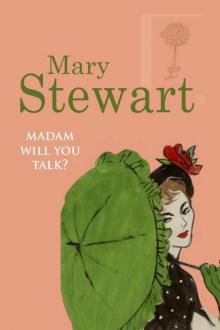 Madam, Will You Talk?
Madam, Will You Talk?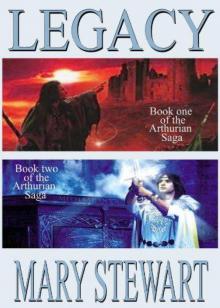 Legacy: Arthurian Saga 1-4
Legacy: Arthurian Saga 1-4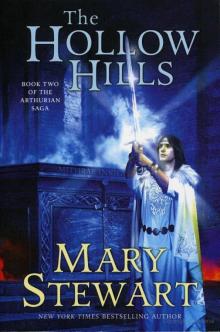 The Hollow Hills
The Hollow Hills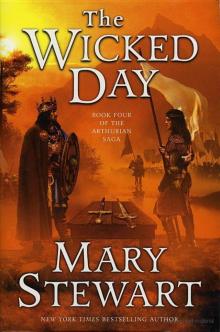 The Wicked Day
The Wicked Day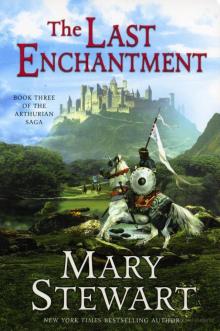 The Last Enchantment
The Last Enchantment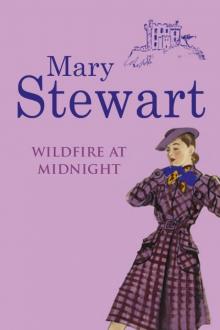 Wildfire at Midnight
Wildfire at Midnight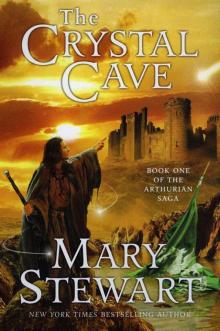 The Crystal Cave
The Crystal Cave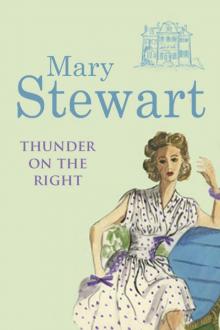 Thunder on the Right
Thunder on the Right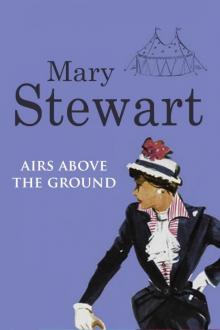 Airs Above the Ground
Airs Above the Ground The Ivy Tree
The Ivy Tree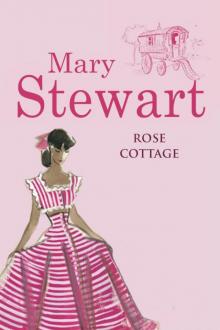 Rose Cottage
Rose Cottage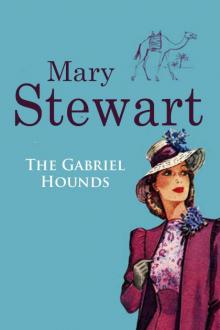 The Gabriel Hounds
The Gabriel Hounds Legacy: Arthurian Saga
Legacy: Arthurian Saga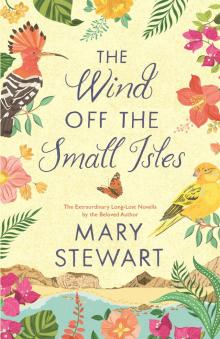 The Wind Off the Small Isles
The Wind Off the Small Isles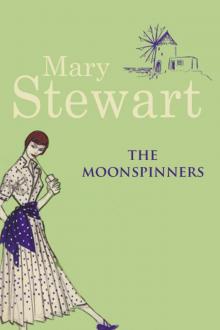 The Moonspinners
The Moonspinners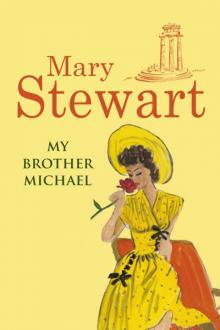 My Brother Michael
My Brother Michael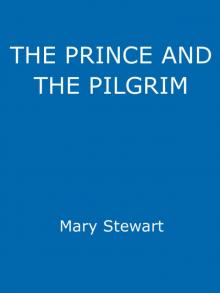 The Prince and the Pilgrim
The Prince and the Pilgrim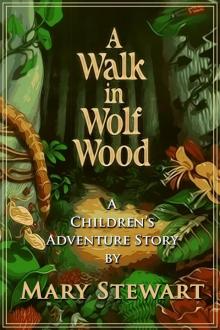 A Wlk in Wolf Wood
A Wlk in Wolf Wood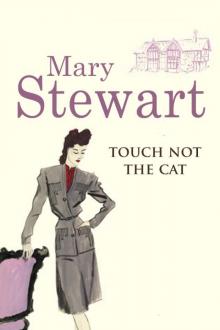 Touch Not the Cat
Touch Not the Cat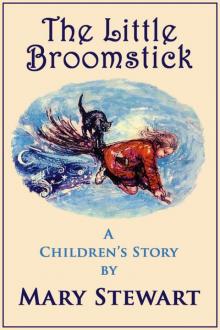 The Little Broomstick
The Little Broomstick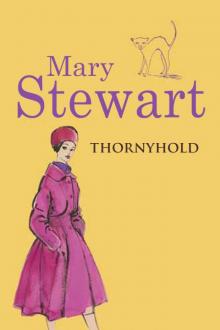 Thornyhold
Thornyhold This Rough Magic
This Rough Magic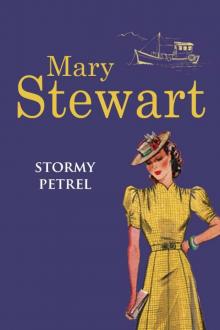 The Stormy Petrel
The Stormy Petrel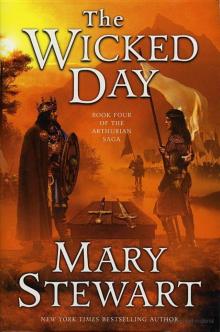 Wicked Day
Wicked Day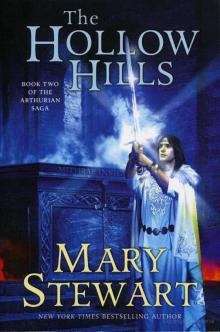 Hollow Hills
Hollow Hills WILDFIRE
WILDFIRE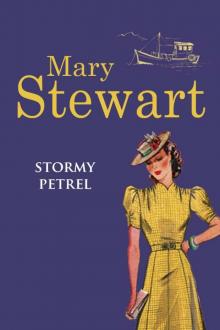 Stormy Petrel
Stormy Petrel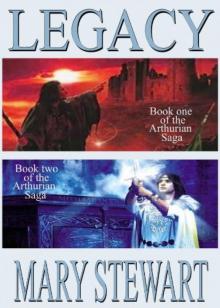 Legacy
Legacy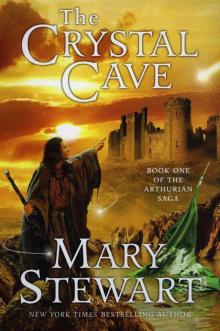 Crystal Cave
Crystal Cave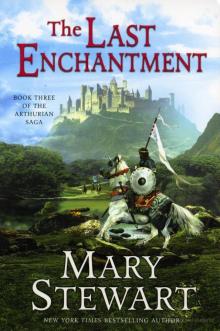 Last Enchantment
Last Enchantment